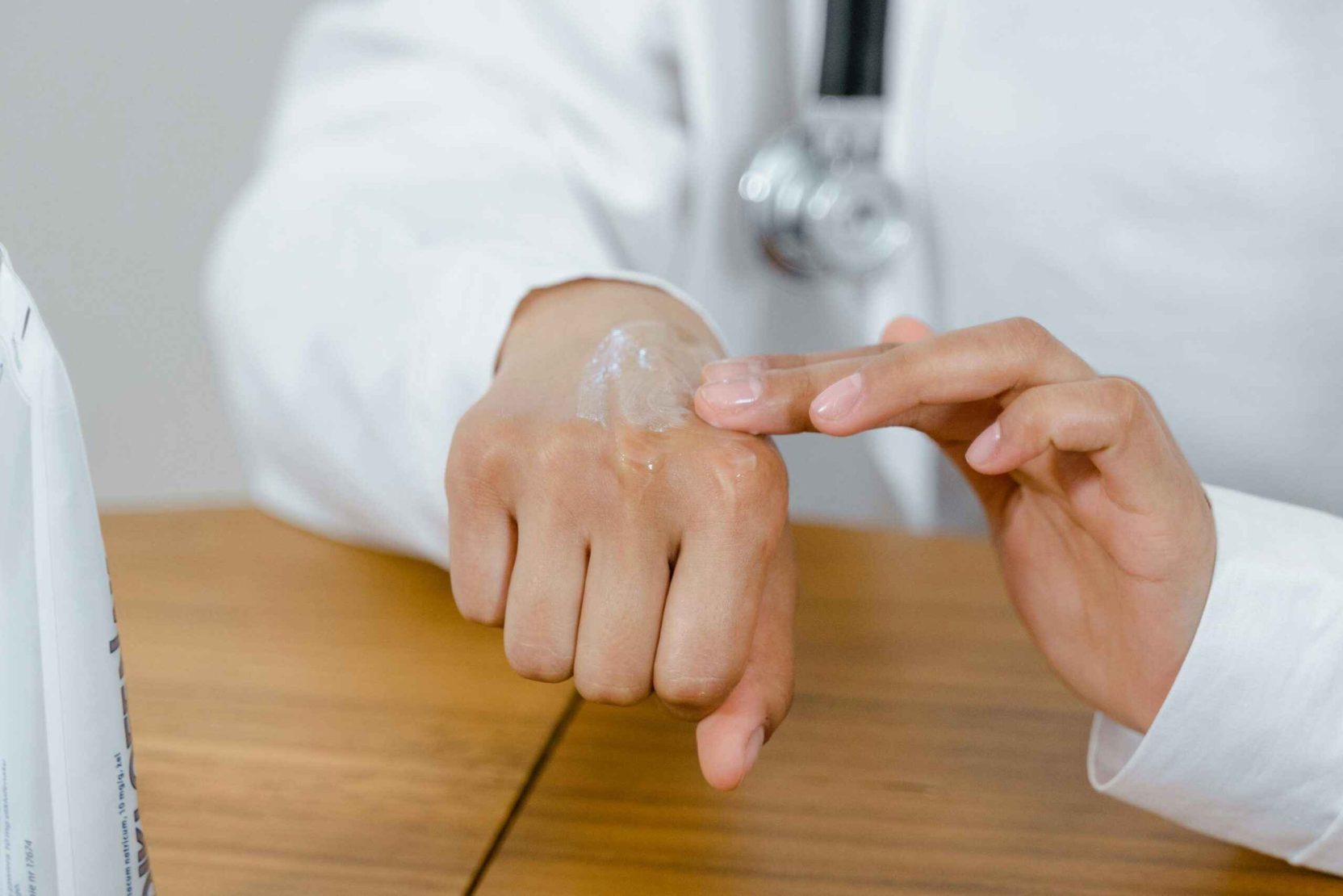
Eczema, also known as atopic dermatitis, is a chronic skin condition characterized by inflamed, itchy, and red patches of skin. While medical treatments are available, many people seek natural home remedies for eczema relief to soothe and heal their skin. In this blog, we’ll explore effective natural treatments, moisturizing techniques, and lifestyle changes that can help you manage eczema symptoms and reduce flare-ups.
Understanding Eczema: A Brief Overview
Eczema affects millions of people worldwide, causing discomfort and frustration. The exact cause of eczema is unknown, but it’s believed to result from a combination of genetic and environmental factors. The condition often leads to dry, sensitive skin, making it prone to inflammation and itching.
Key Symptoms of Eczema Include:
- Itchy Skin: The most common symptom, which can be intense and persistent.
- Red or Brownish Patches: These often appear on the hands, feet, ankles, wrists, neck, upper chest, and the bends of the elbows and knees.
- Dry, Sensitive Skin: Eczema-affected skin may crack, leading to painful sores.
- Thickened Skin: Chronic scratching can cause the skin to thicken and harden.
Understanding your triggers and how to care for your skin is crucial in managing eczema. Let’s dive into some natural home remedies that can provide relief and help maintain healthy skin.
Natural Home Remedies for Eczema Relief
1. How to Soothe Eczema with Coconut Oil
Coconut oil is one of the best natural treatments for itchy eczema skin. Its anti-inflammatory and antimicrobial properties help soothe the skin, reduce itching, and prevent infection.
How to Use:
- Gently apply a thin layer of virgin coconut oil to the affected areas after bathing and before bed.
- Use regularly to keep the skin moisturized and reduce flare-ups.
2. Effective Oatmeal Baths for Eczema Treatment
Colloidal oatmeal has been used for centuries to soothe irritated skin. It forms a protective barrier on the skin, locks in moisture, and helps reduce itching.
How to Prepare an Oatmeal Bath:
- Grind 1-2 cups of plain, uncooked oats into a fine powder.
- Add the oatmeal powder to a lukewarm bath and soak for 10-15 minutes.
- Pat your skin dry and apply a gentle moisturizer immediately after the bath.
3. Using Apple Cider Vinegar for Eczema Relief
Apple cider vinegar (ACV) is known for its antibacterial and antifungal properties, making it an effective home remedy to reduce the risk of infection from eczema.
How to Use ACV:
- Mix equal parts of water and apple cider vinegar.
- Apply the mixture to the affected areas using a cotton ball or cloth.
- Leave it on for a few minutes before rinsing off with water. Moisturize immediately after.
4. Moisturizing Techniques for Eczema-Prone Skin
Keeping the skin well-moisturized is essential for managing eczema. Using the right techniques and products can help retain moisture and reduce flare-ups.
Moisturizing Tips:
- Choose a fragrance-free, hypoallergenic moisturizer, preferably a thick cream or ointment.
- Apply moisturizer immediately after bathing while the skin is still damp.
- Reapply throughout the day as needed, especially on areas prone to dryness.
5. Homemade Remedies to Reduce Eczema Flare-Ups
Several homemade remedies can help soothe eczema-prone skin and reduce the frequency of flare-ups.
Popular Remedies Include:
- Honey: Its natural antibacterial properties can help reduce infection risks. Apply raw honey directly to the affected area, leave it on for 20-30 minutes, then rinse with warm water.
- Aloe Vera: Known for its cooling and soothing properties, aloe vera gel can be applied directly to inflamed skin for relief.
6. How to Create a Soothing Bath for Eczema
Soaking in a soothing bath can help calm irritated skin and alleviate itching.
Soothing Bath Recipes:
- Baking Soda Bath: Add 1/4 cup of baking soda to a lukewarm bath to reduce itching.
- Salt Bath: Add 1-2 cups of Epsom salt or sea salt to your bath to help soothe the skin.
7. Essential Oils for Eczema Relief and Healing
Certain essential oils have anti-inflammatory and healing properties that can benefit eczema-prone skin. However, they should be used with caution and always diluted with a carrier oil.
Top Essential Oils for Eczema:
- Tea Tree Oil: Known for its antimicrobial properties, tea tree oil can help prevent infection.
- Lavender Oil: Helps reduce inflammation and soothe irritated skin.
- Chamomile Oil: Known for its calming effects, chamomile oil can help reduce itching.
How to Use:
- Mix a few drops of your chosen essential oil with a carrier oil (like coconut or olive oil) and apply to the affected area.
Lifestyle Changes to Manage Eczema Symptoms
In addition to natural remedies, making certain lifestyle changes can significantly impact the management of eczema. These changes can help minimize flare-ups and improve overall skin health.
1. Adopt an Eczema-Friendly Diet
Certain foods can trigger or worsen eczema symptoms. Identifying and avoiding these foods can help manage your condition.
Foods to Avoid:
- Dairy products, nuts, and soy products, which are common allergens.
- Processed foods and those high in sugar, which can increase inflammation.
Foods to Include:
- Omega-3-rich foods like salmon, flaxseeds, and walnuts, which can reduce inflammation.
- Fresh fruits and vegetables, particularly those rich in antioxidants.
2. Wear Soft, Breathable Fabrics
The fabrics you wear can affect your eczema. Opt for soft, breathable materials like cotton, and avoid rough, scratchy fabrics like wool that can irritate the skin.
3. Practice Gentle Skin Care
Eczema-prone skin requires gentle care to avoid irritation. Use mild, fragrance-free cleansers, and avoid hot water, which can dry out the skin.
4. Manage Stress
Stress is a known trigger for eczema flare-ups. Incorporating stress management techniques into your daily routine can help reduce the frequency and severity of symptoms.
Stress Management Tips:
- Practice mindfulness and meditation.
- Engage in regular physical activity.
- Ensure you get enough sleep and maintain a consistent sleep schedule.
5. Keep Your Environment Clean
Dust, pollen, and pet dander can trigger eczema. Keeping your home clean and free of allergens can help minimize flare-ups.
Tips for a Clean Environment:
- Use a vacuum with a HEPA filter to reduce dust and allergens.
- Wash your bedding regularly in hot water.
- Use an air purifier to remove allergens from the air.
Conclusion
Eczema can be a challenging condition to manage, but with the right natural remedies, moisturizing techniques, and lifestyle changes, you can soothe and heal your skin effectively. By incorporating these tips into your daily routine, you can reduce flare-ups and improve your skin’s overall health.









